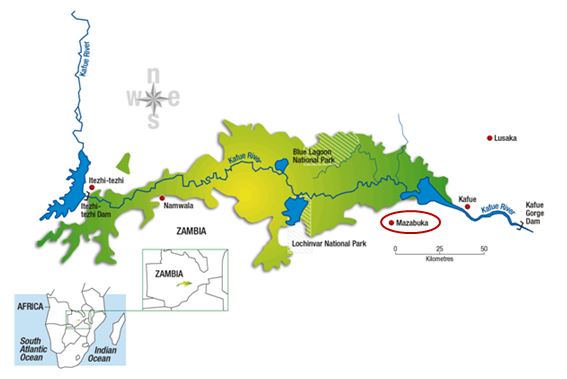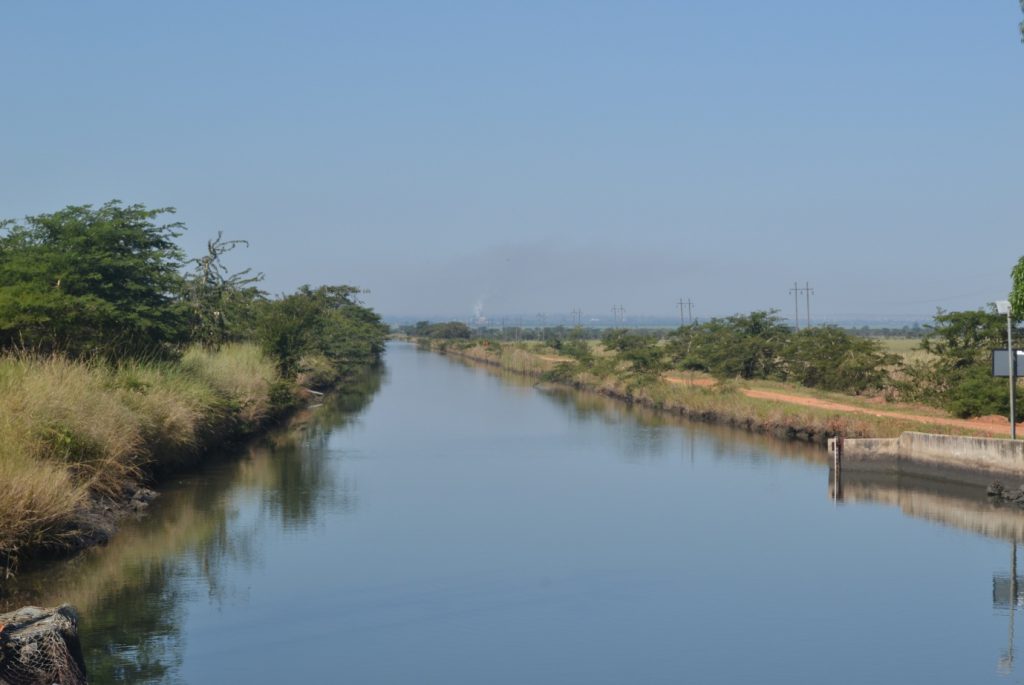
In Zambia, agricultural production is dominated by smallholder farmers (smallholders) cultivating landholdings of 1-5 hectares and providing livelihoods for the majority of rural households. Smallholders use family labour and depend on their farms as their main source of food security and income generation. As part of the IWSN project at Monash South Africa, the research for my Masters has focused on participation of smallholders in water governance in the Zambian sugar industry.
The majority of Zambia’s sugarcane farms are situated in the town of Mazabuka and source their irrigation water from the Kafue River. Most smallholders in the Zambian sugar industry are part of outgrower schemes. The establishment and endurance of these outgrower schemes is based on binding sugarcane and irrigation water supply arrangements with Zambia Sugar Plc (Illovo), a key sugar producer in Zambia. Through these agreements, the outgrower schemes supply sugarcane to Zambia Sugar Plc (Illovo) which, in return, assures them a market for their produce and sells them irrigation water. The high cost of the infrastructure needed to extract irrigation water from the Kafue River makes buying water from Zambia Sugar Plc (Illovo), which has the capacity to abstract large volumes of irrigation water, a very viable option for outgrowers. When the irrigation water is delivered to the outgrower scheme it is shared by the smallholders, making them highly dependent on each other. This interdependence requires willingness amongst the smallholders to work collectively in order to achieve their individual and mutual objectives. To facilitate the collaboration amongst smallholders, participation is necessary. It is also important for smallholders to participate in water governance in order to safeguard their water security and livelihoods.

Plc’s estate in several canals. Within Zambia Sugar Plc the water is used for
irrigation water, the mill and domestic use. The rest of the water is sold and
distributed to outgrowers and everyone else in Mazabuka who depends on
Zambia Sugar Plc for their water supply. (Source: Fieldwork)
For this study I compared two outgrower schemes with distinctly significant differences in their origins and their organisational structures. Some smallholders expressed facing difficulties in participating in water governance whilst others felt they had good participatory processes within their outgrower schemes. The conclusions drawn from the study were that the context in which smallholders operate is an important determinant of their ability to participate in water governance. The organisational cultures within outgrower schemes can either cause smallholders to feel marginalised and powerless or relevant and involved in decision-making processes that affect them profoundly. Not only do outgrower schemes need to be conscious of their organisational strengths and weaknesses, but they must be responsive to smallholders’ individual abilities and limitations, too. This is important because outgrower schemes’ organisational capabilities and knowledge networks create opportunities for organisational and individual learning for the smallholders regarding important issues such as sustainable water use.
Appropriate adjustments have to be made by policy makers to ensure that individual smallholders have the ability to participate and influence development initiatives in the governance of their water resources. Currently, the voices of some smallholders seem not to find expression within the water governance framework in the sugar industry in Zambia. As primary users of water resources, smallholders have a direct impact on its quality and quantity. This is particularly significant in the Zambian sugar industry which is a major user of water resources from the Kafue River. Due to its geographical position, the Kafue River is an important source of water supply to over 40% of the Zambian population, rural and urban, living in the Kafue River Basin. For that reason, the sugar industry will constantly compete with other industries for water resources. As competition for water increases and the expectations for improved efficiency of water use grows so will the importance of participatory governance, determining how smallholders can sustain a sense of water security. Thus for policy makers, the active engagement of smallholders directly rather than only through representation from outgrower schemes should become a priority.
